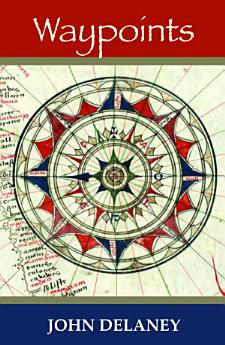Waypoints
អំពីសៀវភៅអេឡិចត្រូនិកនេះ
អំពីអ្នកនិពន្ធ
John Delaney recently retired after 35 years in the Dept. of Rare Books and Special Collections of Princeton University Library, where he was head of manuscripts processing and then, for the last 15 years, curator of historic maps. He has written a number of works on cartography, including Strait Through: Magellan to Cook and the Pacific; First X, Then Y, Now Z: An Introduction to Landmark Thematic Maps; and Nova Caesarea: A Cartographic Record of the Garden State, 1666-1888. These have extensive website versions. He has written poems for most of his life, and, in the 1970s, he attended the Writing Program of Syracuse University, where his mentors were poets W. D. Snodgrass and Philip Booth. No doubt, in subtle ways, they have bookended his approach to poems. John has traveled widely, preferring remote, natural settings, and is addicted to kayaking and hiking.





